This is the second guide in a 2-part series on eCommerce social proof strategies.
If you missed part one, check out 5 Social Proof Tactics To Increase Your eCommerce Revenue.
In the first part, I discuss:
- What social proof is
- Why it’s essential for eCommerce stores
- 5 social proof examples
So be sure to read and take notes on the first part if you haven’t already.
In this particular post, I’ll walk through 7 more social proof tactics you can use to increase your eCommerce store’s revenue.
Let’s dive right in.
1. Brand Ambassadors
The first strategy involves using brand ambassadors. This strategy is similar to traditional influencer marketing, but it goes a few steps deeper.
Brand ambassadorship is based on a much deeper connection and a more collaborative approach to social media marketing and building social proof.
The entire notion behind brand ambassadorship is to develop long-term relationships with influencers who are already engaging with your products.
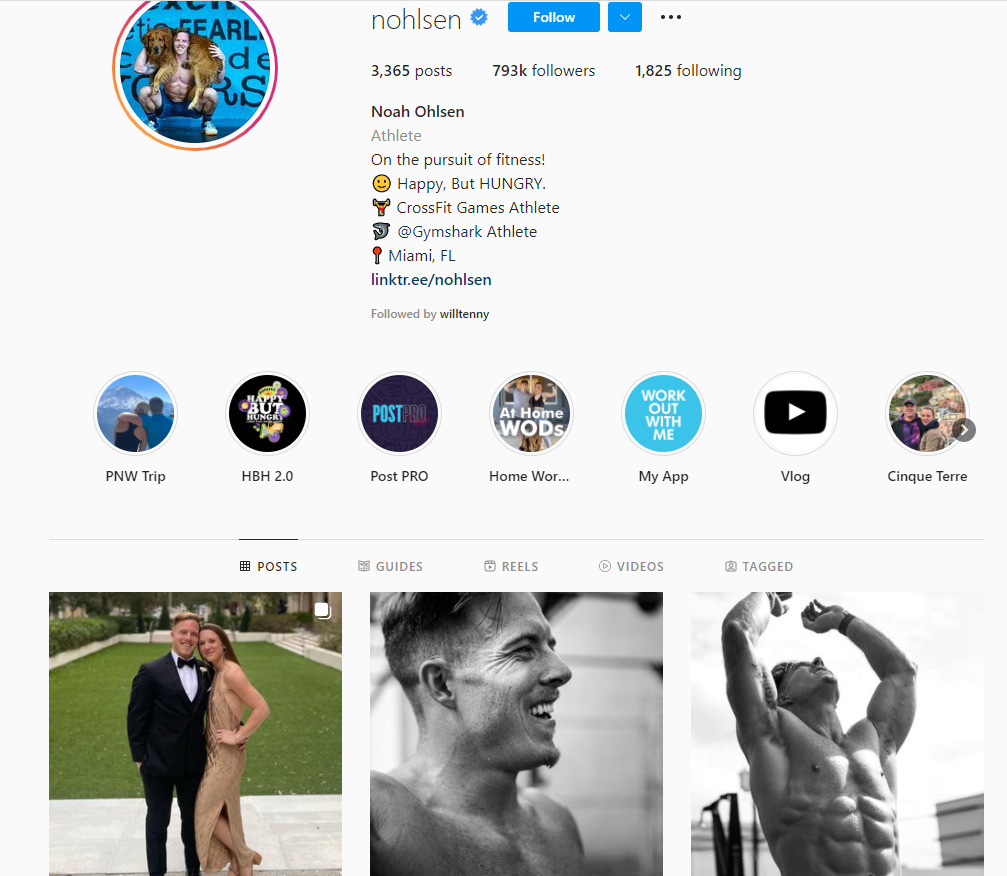
Gymshark is a fitness apparel company that rose to stardom through their brand ambassador program. This program is called ‘Gymshark Athletes’. Gymshark has built a community of fitness influencers that wear and discuss Gymshark on their social media accounts.
Gymshark can then use the content their ambassadors post on their own Instagram account and website. In terms of incentive, each Gymshark Athlete has a different pay grade depending on their popularity and results as an influencer.
Ambassadors will also receive free products that they can wear and post on social media.
It would be best to look for influencers who genuinely like your products and believe in your company’s goals. Brand ambassadorship is all about building a mutually beneficial partnership that’s not solely centered around money.
Brand ambassadors can also be included in photo shoots with images you display on your homepage.
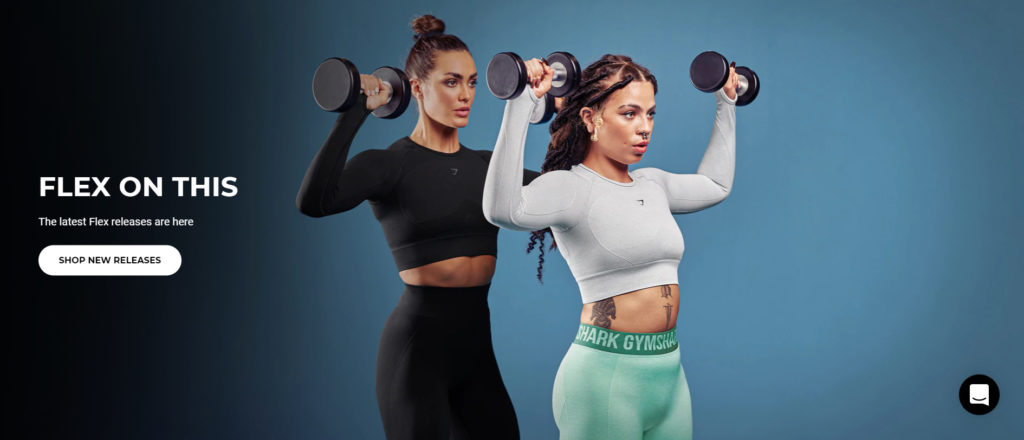
2. Influencer Marketing
Although brand ambassadors build extraordinary social proof, this isn’t feasible for every eCommerce store. Finding influencers who use your products can be tough. It can be even more difficult getting them to join your ambassador program.
For this reason, you can also conduct influencer marketing to build social proof. Rather than spending 5 or 6-figures on established influencers, I recommend using micro-influencers.
Micro-influencers typically have 5,000 to 50,000 Instagram followers. The strategy is to reach out to these smaller influencers and ask them if they’re willing to create a post about your product in exchange for a free product.
You also need to ask them if you can repost their content on your own brand’s Instagram page.

This is an example of how a brand called The Oodie reposts content their customers created.
This tactic is a fantastic way of building your Instagram account to create more social proof. Furthermore, you’ll also be able to share the content on your brand’s website.
While using this strategy, it’s crucial to find micro-influencers that are related to your niche. You should also ensure they receive 3% or more engagement on their posts.
Simply send potential influencers a DM that discusses how you’d love to collaborate and send them a free product.
3. Social Proof in Ads and Emails
Once you have a few dozen customer reviews and user-generated content, you can begin using them on every marketing outlet.
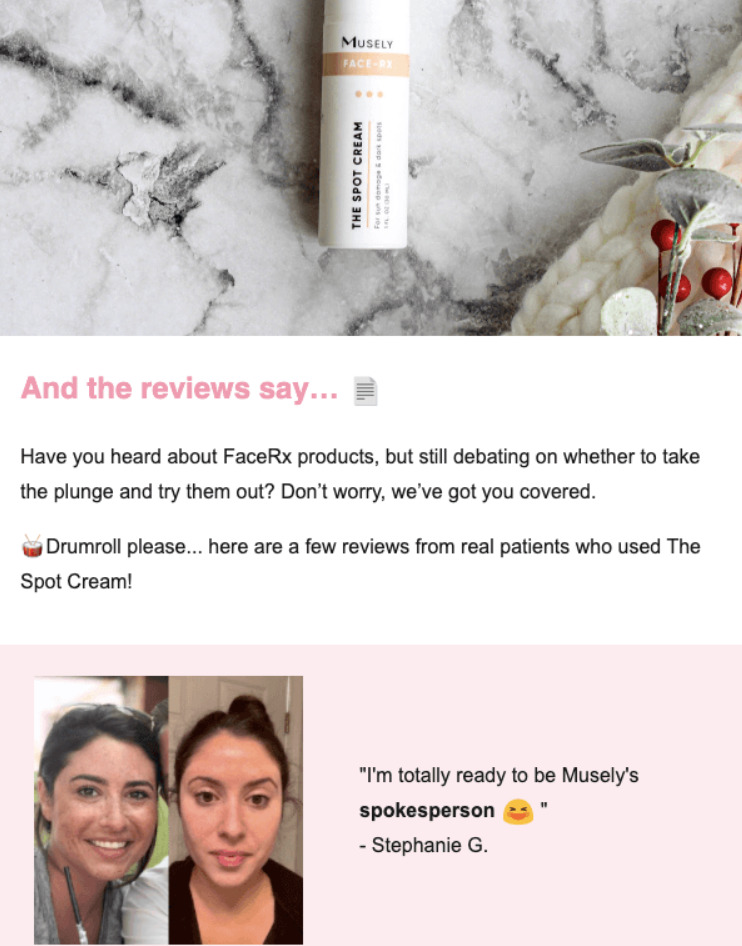
Customer testimonials are highly impactful when used in shopping cart abandonment emails. As an eCommerce store owner, your goal is to prove to potential customers that your brand is worthy of their money.
Since social proof is the best way of gaining a customer’s trust, it’s vital to deploy your reviews and user-generated content wherever possible.
4. Best Selling and Trending Products
Another impactful but straightforward way of building social proof is to add best selling and trending products sections.
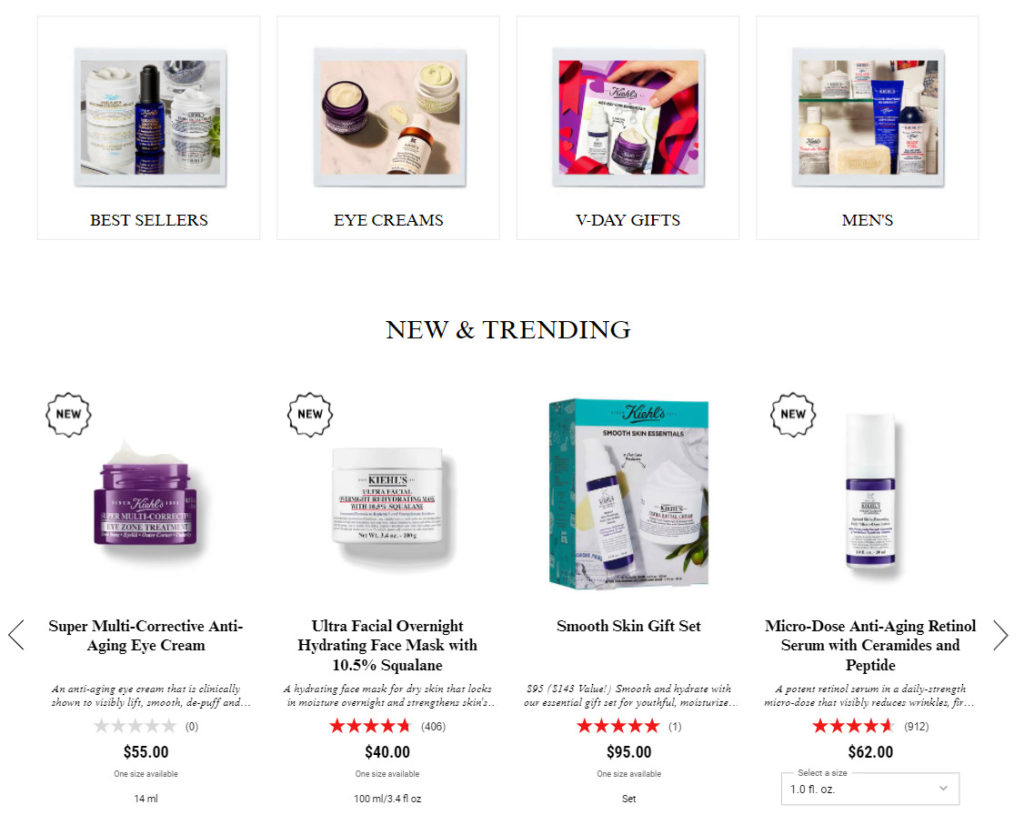
Cosmetics retailer, Kiehls, provides a ‘Best Sellers’ and a ‘New & Trending’ section. This makes it easy for visitors to find products that are popular. Consumers gravitate towards popular products because of the assumption that popular equals better.
5. Increase Urgency Through Scarcity
A clothing brand called In The Style uses group conformity psychology by adding ‘Selling Fast!’ and ‘Over 100 sold recently!’ stickers on their top products.

By displaying the stickers, customers who are interested in these projects will feel the urge to make a purchase quickly. This also relates to a FOMO or fear of missing out strategy.
There are three primary ways that FOMO affects consumers:
- They purchase products because of social pressure and don’t want to be left out
- Consumers make purchases because they fear missing out on a great deal
- They regret missing out on an opportunity and decide to take action anyway
Either way, FOMO is a potent tool to build social proof, gain new customers, and earn more revenue.
Another example comes from J.Crew:
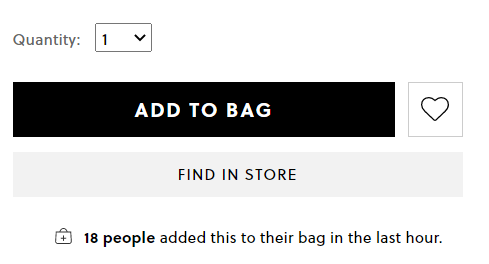
J.Crew’s products mention how many sales or add-to-carts the product has had in the past hour. Although they don’t explicitly say the stock is running low, customers will assume they need to act quickly to get their desired size.
6. Create a Value-Driven Blog and Enable Comments
Creating a blog is another impactful strategy to build social proof. This tactic involves creating relevant blog posts that your audience would be interested in reading.

For example, Fitbit has an extensive blog covering a variety of topics. Since Fitbit sells fitness watches, they create blog posts covering nutrition, activity, stress, and sleep.
These are all topics that their audience would find helpful. By creating valuable content for your visitors, you prove to your audience that you’re much more than just an online retailer. Instead, they’ll perceive your brand as a company that cares about and understands their customers.
By enabling a comments section on each post, you can also create stimulating discussions and build a community around your brand.
7. Industry Expert Review
Besides celebrities, industry experts such as business leaders or well-known professionals are also highly respected by online shoppers. People view them as authority figures because they have acquired knowledge and skills from their respective fields.
For example, if you have a home and furniture store, testimonials from interior designers boost your brand’s credibility.

Qardio, an eCommerce store selling blood pressure monitor devices, have a testimonial from an experienced doctor.
Once you have the testimonial, I recommend creating a hero image just like Qardio did above. Make sure to include who the expert is and what their qualifications are. You can either place the hero image on a specific product page or on your homepage.
Conclusion
I hope you enjoyed part two of our series on eCommerce social proof tactics to increase your store’s revenue.
At this point, you should fully understand what social proof is and why it’s an essential branding and marketing strategy.
Rather than implementing every strategy at once, I recommend picking one tactic first.
So, what are you waiting for?
It’s time to transform your eCommerce store into a conversion machine.
Leave a comment below if you have any thoughts or questions.




